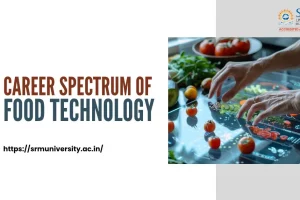Food, an essential aspect of human existence and a central part of socializing drives a significant industry worldwide. Explore the Top Food Technology University in Haryana to excel in this thriving field, shaping the future of food innovation and sustainability. The food business is the largest private-sector employer in India, employing approximately 3.8 million people – 14% of total India’s employment! The food we eat is an enormous business, from Burger King to Cordon Bleu.
But, whether at home or in a restaurant, what does it take to bring food on your plate? A Food Science / Technology degree will be ideal for you if you want to learn how food gets from the farm, factory, or rice paddy to your digestive tract (and what happens once it’s there…).
What can you do with a degree in Food Science / Technology?
Some people believe that obtaining a food-related degree is just for individuals who want to be chefs or work in the catering sector. Of course, if you want to be a chef, doing a food-related education will help you advance in your profession, but it is by no means required, whereas Food Science / Technology graduates have a far broader range of alternatives. To study Food Science / Technology, you don’t even need to be an excellent cook!
Because the range of Food Science / Technology courses available to study reflects this diversity, we’ve paired them up with various job routes to assist you in picking one that could represent your individual interests and future ambitions.
Ensuring food safety
You don’t want to get food poisoning if you’ve never had it before; once you have, you’ll never want to. Fortunately, there are people engaged to assure food safety and quality, lowering your risks of contracting a foodborne illness. This is a very serious job, usually in the public sector: people’s health, even lives, are on the line, and being able to correctly identify contamination risks and the conditions required to avoid them necessitates a thorough understanding of food safety standards and the science that underpins them.
The requirements placed on businesses preparing or serving food are enshrined in law due to the serious nature of ensuring food hygiene standards, and those employed to enforce these standards have the power to decide the fate of any business that fails to meet adequate standards. As a result, a significant portion of the job entails visiting restaurants, cafes, pubs, bars, and other establishments that prepare or serve food to ensure that standards are met, including inspecting the environment in which food is stored and prepared, the condition of the food, the working practices of those preparing the food, and ensuring that a food safety management system is in place.
If you think you’d be good at this job, a program like SRMUH’s Bachelor’s Degree in Food Technology might be a good place to start. Students will gain “knowledge and awareness of three main topics related to food production and consumption” through this program.
- Food Quality
- Food Safety
- Nutrition
Diverse Career Opportunities:
Food is important for the human race’s healthy reproduction, but it is also about flavor. Humans require nourishment that will keep them alive, which requires nutrients. Here are three separate but related job pathways in the food-health relationship that you could be interested in.
Nutritionists provide guidance on the impact of diet and nutrition on health, although they are not a recognized profession. A nutritionist can advise healthy individuals on their diets, they must also operate under the supervision of a dietitian if they are working with an unwell or hospitalized patient. Nutritionists are frequently self-employed, such as when starting a business, but they may also be hired by public or private organizations, and there are optional regulating bodies that nutritionists can join to ensure their skill, professionalism, and experience.
Dietitians are certified to assess, diagnose, and treat dietary and nutritional disorders at an individual and larger public health level. Dietitians may help anybody, from perfectly healthy people who want to modify their diet for personal reasons to chronically ill people who have nutritional needs that will enhance their quality of life.
Nutritional Therapists often operate in private practice, counseling clients on how to improve their health via nutrition, and treating each patient on an individual, case-by-case basis.
If any of these jobs appeal to you, the Food Science / Technology program at SRM University, Sonepat costs Rs. 55,000 per year. The three-year program at SRMUH teaches students how to recognize and develop the next nutritional trends, as well as the necessity of building a sustainable, nutritious, and healthy food supply, and guarantees 100% placement in the food sector or a nutrition/health-related organization. These are some key facilities offered!
- Food Technology Laboratory
- Food Testing Lab
- Personality Development & Value Education Training
Final Say
SRM University in Delhi-NCR offers a comprehensive Food Technology program that equips students with theoretical and practical knowledge in various aspects of food technology. Students gain a solid foundation in food safety, quality management, and national and international food laws and regulations. The program also covers advanced technologies adopted in various food industries, making graduates industry-ready and in demand. Join SRM University in Delhi-NCR to pursue a rewarding career in the exciting field of Food Technology.






